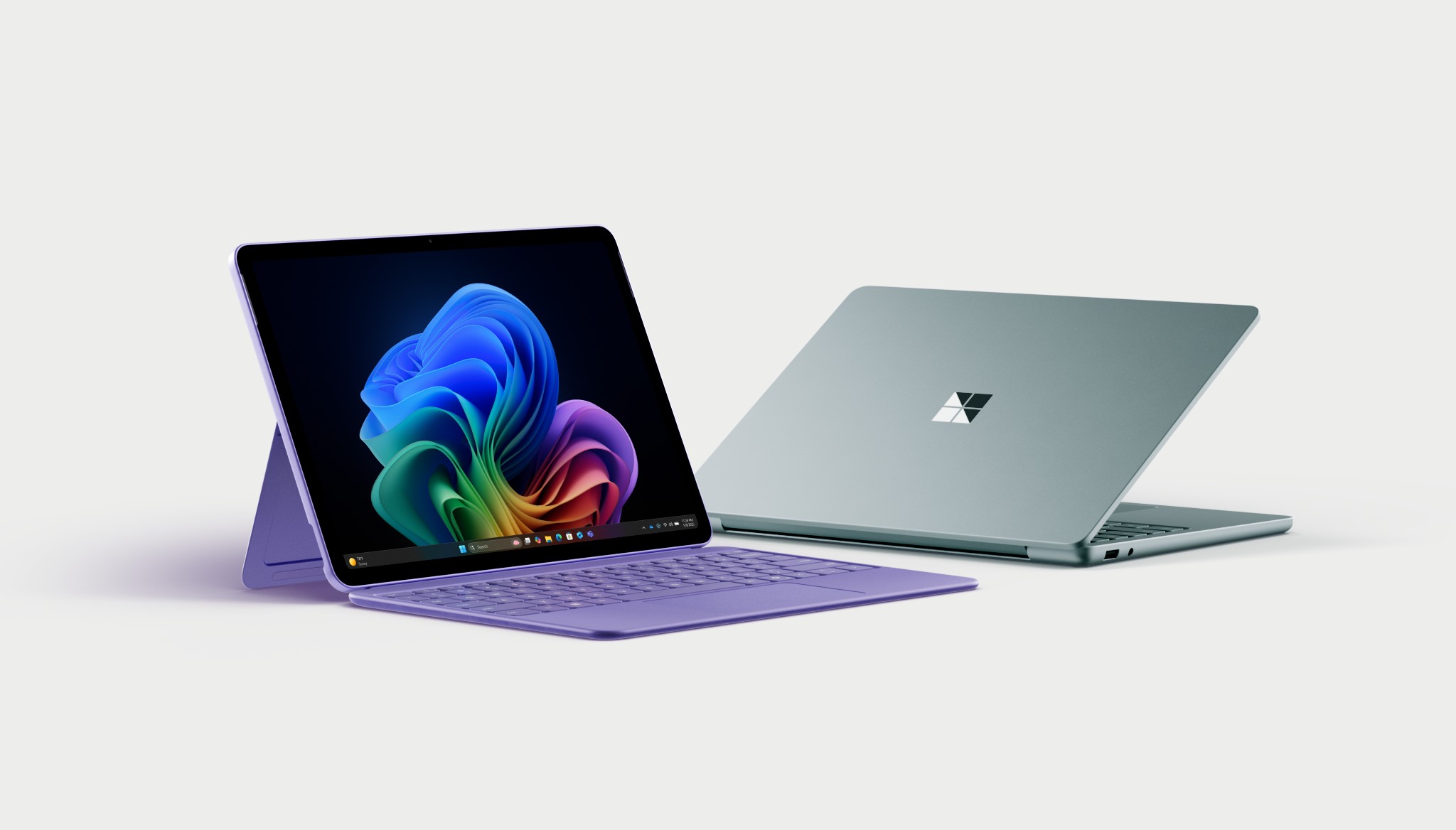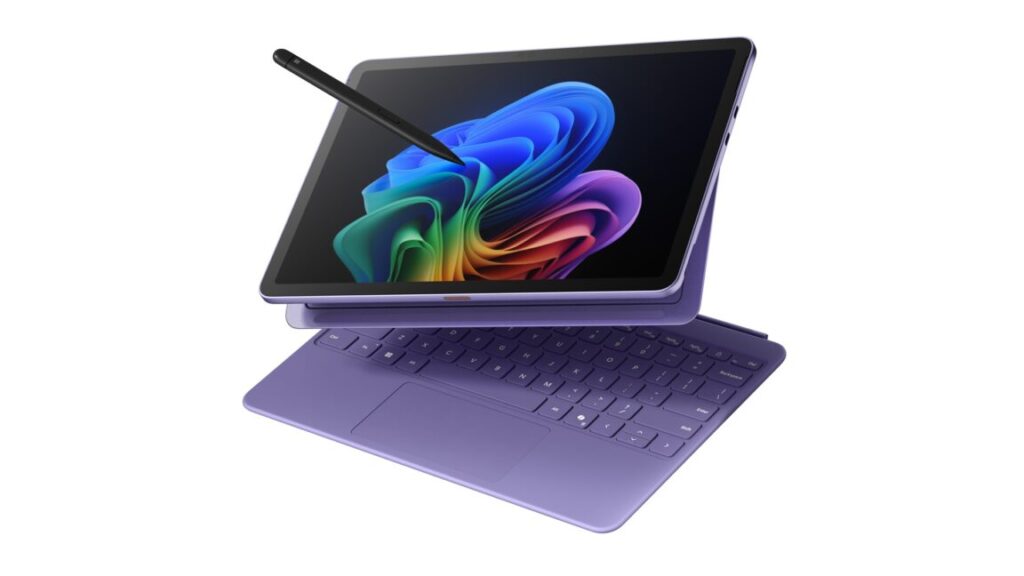Several downgrades, and one that’s hard to ignore
The 12-inch Surface Pro.
Credit:
Microsoft
The design looks pretty similar to the existing 13-inch Surface Pro overall but with some significant tweaks. The 12-inch Surface still supports the Slim Pen and other Surface styluses, but there’s now a magnet on the back of the tablet that the pen can be stuck to for storage, rather than a divot on the keyboard. The tablet still has a pair of USB-C ports, each of which supports 10 Gbps USB 3.2 speeds rather than full USB 4. But the Surface Connect port is gone, and because it’s physically smaller, the new Surface Pro isn’t compatible with any of the keyboard accessories made for past Surface Pro or Surface Go tablets.
But the biggest downgrade is a fundamental change to the tablet’s design. The 12-inch Surface Pro’s keyboard case (still a separate purchase, frustratingly) lies flat against whatever you have the tablet sitting on, whether that’s a desk, a table, or your lap. If the surface your Surface is resting on is level and stable, that’s mostly fine. If the surface is soft or uneven, like a lap or a couch, this introduces extra instability and floppiness, and your keyboard will wobble around more as you type on it.

Both of the new Surface devices being announced today. Note that the Surface Pro’s keyboard sits flat against the table, rather than folding up against the bottom of the screen.
Credit:
Microsoft
This is the same approach used as the first two generations of Surface Pro (and the ill-starred Surface RT), and it was also a perennial complaint about those designs from reviewers and users. In 2014, the Surface Pro 3 tweaked the keyboard design so that the top of it would fold flat against the bottom of the device’s screen, giving the keyboard some rigidity and stability that persisted no matter what it was resting on. All subsequent Surface keyboards, including those for the tiny 10.5-inch Surface Go, used the same design, until this one.
The iPad keyboard case I use—a Logitech Combo Touch Keyboard Folio with a built-in trackpad and kickstand—also uses the flop-against-the-table design, which hasn’t been the end of the world. But solving this problem was a major turning point in the evolution of the Surface Pro, and it’s frustrating to see that signature improvement undone here.


